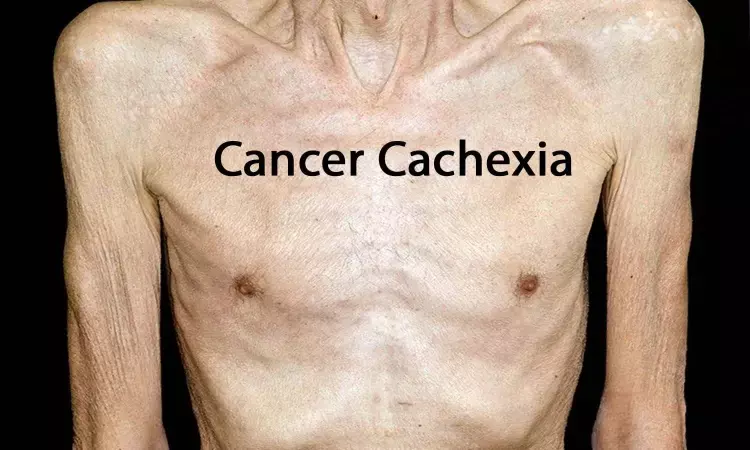- Home
- Medical news & Guidelines
- Anesthesiology
- Cardiology and CTVS
- Critical Care
- Dentistry
- Dermatology
- Diabetes and Endocrinology
- ENT
- Gastroenterology
- Medicine
- Nephrology
- Neurology
- Obstretics-Gynaecology
- Oncology
- Ophthalmology
- Orthopaedics
- Pediatrics-Neonatology
- Psychiatry
- Pulmonology
- Radiology
- Surgery
- Urology
- Laboratory Medicine
- Diet
- Nursing
- Paramedical
- Physiotherapy
- Health news
- Fact Check
- Bone Health Fact Check
- Brain Health Fact Check
- Cancer Related Fact Check
- Child Care Fact Check
- Dental and oral health fact check
- Diabetes and metabolic health fact check
- Diet and Nutrition Fact Check
- Eye and ENT Care Fact Check
- Fitness fact check
- Gut health fact check
- Heart health fact check
- Kidney health fact check
- Medical education fact check
- Men's health fact check
- Respiratory fact check
- Skin and hair care fact check
- Vaccine and Immunization fact check
- Women's health fact check
- AYUSH
- State News
- Andaman and Nicobar Islands
- Andhra Pradesh
- Arunachal Pradesh
- Assam
- Bihar
- Chandigarh
- Chattisgarh
- Dadra and Nagar Haveli
- Daman and Diu
- Delhi
- Goa
- Gujarat
- Haryana
- Himachal Pradesh
- Jammu & Kashmir
- Jharkhand
- Karnataka
- Kerala
- Ladakh
- Lakshadweep
- Madhya Pradesh
- Maharashtra
- Manipur
- Meghalaya
- Mizoram
- Nagaland
- Odisha
- Puducherry
- Punjab
- Rajasthan
- Sikkim
- Tamil Nadu
- Telangana
- Tripura
- Uttar Pradesh
- Uttrakhand
- West Bengal
- Medical Education
- Industry
Management of Cancer Cachexia: ASCO Guideline

The American Society of Clinical Oncology has released latest evidence-based guidance on the clinical management of cancer cachexia in adult patients with advanced cancer. The guidelines have been published in the Journal of Clinical Oncology.
Cachexia is a multifactorial syndrome characterized by loss of appetite, weight, and skeletal muscle, leading to fatigue, functional impairment, increased treatment-related toxicity, poor quality of life, and reduced survival. The purpose of this guideline is to provide evidence-based guidance on the optimal approach for the treatment of cachexia in patients with advanced cancer.
Among adult patients with advanced cancer and cachexia, do: (1) nutritional interventions, (2) pharmacologic interventions, and/or (3) other interventions improve clinical outcomes? In this syndrome, there is no single clinical variable widely regarded as the standard primary outcome; therefore, appetite, body weight, lean body mass, physical function, and quality of life were included as appropriate end points.
The target population for observance of guidelines is adult patients with advanced cancer and loss of appetite, body weight, and/or lean body mass.
Recommendations
Nutritional Interventions
Recommendation
1. Clinicians may refer patients with advanced cancer and loss of appetite and/or body weight to a registered dietitian for assessment and counseling, with the goals of providing patients and caregivers with practical and safe advice for feeding; education regarding high-protein, high-calorie, nutrient-dense food; and advice against fad diets and other unproven or extreme diets (Type of recommendation: informal consensus; Evidence quality: low; Strength of recommendation: moderate).
Recommendation
2. Outside the context of a clinical trial, clinicians should not routinely offer enteral tube feeding or parenteral nutrition to manage cachexia in patients with advanced cancer. A short-term trial of parenteral nutrition may be offered to a very select group of patients, such as patients who have a reversible bowel obstruction, short bowel syndrome, or other issues contributing to malabsorption, but otherwise are reasonably fit. Discontinuation of previously initiated enteral or parenteral nutrition near the end of life is appropriate (Type of recommendation: informal consensus; Evidence quality: low; Strength of recommendation: moderate).
Pharmacologic Interventions
Recommendation
1. Evidence remains insufficient to strongly endorse any pharmacologic agent to improve cancer cachexia outcomes; clinicians may choose not to offer medications for the treatment of cancer cachexia. There are currently no FDA-approved medications for the indication of cancer cachexia (Type of recommendation: evidence based; Evidence quality: low; Strength of recommendation: moderate).
Recommendation
2.Clinicians may offer a short-term trial of a progesterone analog or a corticosteroid to patients experiencing loss of appetite and/or body weight. The choice of agent and duration of treatment depends on treatment goals and assessment of risk versus benefit (Type of recommendation: evidence based; Evidence quality: intermediate; Strength of recommendation: moderate).
Other Interventions
Recommendation 3. Outside the context of a clinical trial, no recommendation can be made for other interventions, such as exercise, for the management of cancer cachexia.
Dietary counseling may be offered with the goals of providing patients and caregivers with advice for the management of cachexia. Enteral feeding tubes and parenteral nutrition should not be used routinely. In the absence of more robust evidence, no specific pharmacological intervention can be recommended as the standard of care; therefore, clinicians may choose not to prescribe medications specifically for the treatment of cancer cachexia. Nonetheless, when it is decided to trial a drug to improve appetite and/or improve weight gain, currently available pharmacologic interventions that may be used include progesterone analogs and short-term (weeks) corticosteroids.
For further reference log on to:
Journal of Clinical Oncology - published online before print May 20, 2020
Dr Kamal Kant Kohli-MBBS, DTCD- a chest specialist with more than 30 years of practice and a flair for writing clinical articles, Dr Kamal Kant Kohli joined Medical Dialogues as a Chief Editor of Medical News. Besides writing articles, as an editor, he proofreads and verifies all the medical content published on Medical Dialogues including those coming from journals, studies,medical conferences,guidelines etc. Email: drkohli@medicaldialogues.in. Contact no. 011-43720751


